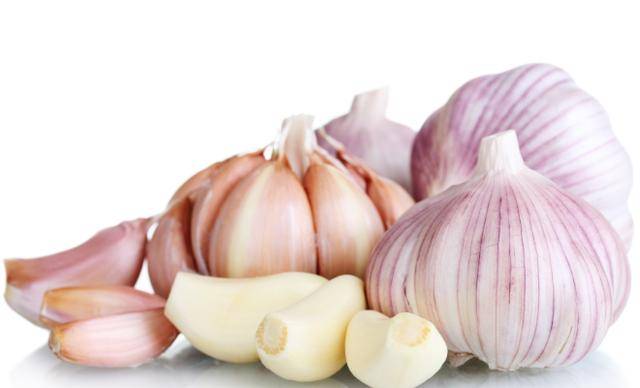Garlic is a common seasoning and medicinal herb, which not only has a unique flavor and taste but also rich nutritional and medicinal value. However, many people may not know that garlic has a golden partner that can help enhance its effectiveness.
What nutrients does garlic contain?
Garlic contains dozens of beneficial nutrients, including 33 sulfur compounds, 17 amino acids, as well as germanium, calcium, iron, potassium, magnesium, selenium, zinc, and essential vitamins A, B1, C, all of which are indispensable nutrients for humans.
Garlic, warming the stomach, aiding digestion, detoxifying, and killing parasites, can treat diseases such as cold abdominal pain, diarrhea, dysentery, and indigestion.
Is eating garlic at night like taking arsenic?
Many people think that eating garlic at night is like taking arsenic, but this is an exaggeration.
Garlic can dispel cold, invigorate the stomach, and have antiparasitic and detoxifying effects. Garlic is a food with a warm nature and is also highly stimulating. Eating too much at night can easily cause heatiness.
Patients with hepatitis, liver heat, excessive stomach fire, and eye irritation should avoid eating garlic at night as it can worsen their condition.
Garlic has many benefits, if you love it, here are 5 benefits waiting for you!
1. Diabetes prevention
Garlic contains a rich amount of selenium, which greatly assists in insulin production, effectively preventing and treating diabetes. Additionally, if you already have diabetes, eating a few cloves of garlic regularly can help alleviate discomfort caused by diabetes.
2. Auxiliary antibacterial effects
Eating garlic in moderation can have benefits and act as an antibacterial. Garlic contains abundant allicin which can inhibit bacteria. Although eating garlic may cause bad breath, the sulfur compounds and allicin inside can help control oral bacteria, maintaining a healthy oral environment which aids in the prevention of certain diseases.
Therefore, in the process of promoting health, using garlic to help suppress bacteria can ensure good health.
3. Antiplatelet aggregation
Garlic oil can inhibit platelet aggregation. The principle behind this is that garlic oil improves the physicochemical properties of platelets, affecting the release and uptake functions of platelets, inhibiting the binding of platelets to fibrinogen, and affecting platelet function.
4. Antioxidant properties
Garlic has a strong antioxidant effect and can eliminate free radicals in the body, reducing cell damage from oxidative reactions. Consuming garlic regularly can help delay the aging process, prevent chronic diseases such as cancer and cardiovascular diseases, protect the health of the liver and kidneys, and boost the body’s immunity.
5. Increase appetite
Garlic contains over 30 flavorful substances, mainly sulfur compounds. A whole garlic has no odor, but when crushed or cut, garlic cells break releasing allicin, a volatile sulfur compound that gives garlic its unique pungent flavor, stimulating appetite when consumed.
Garlic has a golden partner, eating openly can lower blood sugar to 5.3, no more dry mouth and thirst
1. Oats
Oats are a common grain rich in dietary fiber, protein, vitamins B1, B2, E, magnesium, zinc, and other nutrients. Oats have various health benefits such as lowering blood sugar, blood lipids, and blood pressure, earning the title “golden grain”.
The dietary fiber in oats can slow down food digestion and absorption, reduce the rate of blood sugar rise, and help control blood sugar levels.
Moreover, the vitamins B1 and B2 in oats can promote insulin secretion, improve insulin utilization, and help lower blood sugar. Therefore, garlic and oats have a close relationship as a golden duo, mutually reinforcing each other to achieve the best effect.
2. Bitter melon
Bitter melon, also known as bitter gourd, has a slightly bitter taste but is highly nutritious. It contains abundant vitamin C, B vitamins, and various minerals, with effects of heat-clearing, detoxification, and diuresis. Particularly, the bitter melon glycosides in bitter melon can effectively lower blood sugar, making it an ideal ingredient for diabetic patients.
When garlic meets bitter melon, they complement each other, maintaining their unique flavors while exerting a synergistic effect. The spiciness of garlic can balance the bitterness of bitter melon, enriching the taste of the dish.
Additionally, allicin in garlic and bitter melon glycosides in bitter melon work together in the body to more effectively regulate blood sugar levels and stabilize blood sugar within a healthy range.
3. Onion
Onions are also rich in nutrients, especially sulfur compounds and quercetin, which are beneficial for health. When garlic meets onions, their nutrients have a synergistic effect that may help stabilize blood sugar levels.
The sulfur compounds in onions promote insulin secretion, increase cell glucose utilization, thereby lowering blood sugar.
Furthermore, onions contain abundant quercetin, a substance with strong antioxidant properties that can protect pancreatic cells from oxidative damage, maintaining normal insulin secretion.
4. Honey
Garlic is rich in selenium, a potent antioxidant. This element can effectively eliminate free radicals, with a power 50-500 times stronger than vitamin E. This means it can effectively destroy formed peroxides, reducing the risk of inflammation.
When allicin in garlic combines with vitamin B1 in honey, they can produce thiamine propyl disulfide, which has a great protective effect on the liver.
Garlic is a spicy and irritating food, which may stimulate the gastric mucosa. However, the spleen-tonifying, stomach-nourishing, and yin-nourishing properties of honey can compensate for this garlic’s drawback.
Although eating garlic has many benefits, its spiciness is relatively strong. Therefore, it is not recommended to consume too much at once as it can easily damage the gastric mucosa. Also, if you have liver problems such as hepatitis, it’s best to avoid garlic as certain substances in garlic may cause anemia, which is very unfavorable for hepatitis treatment.


